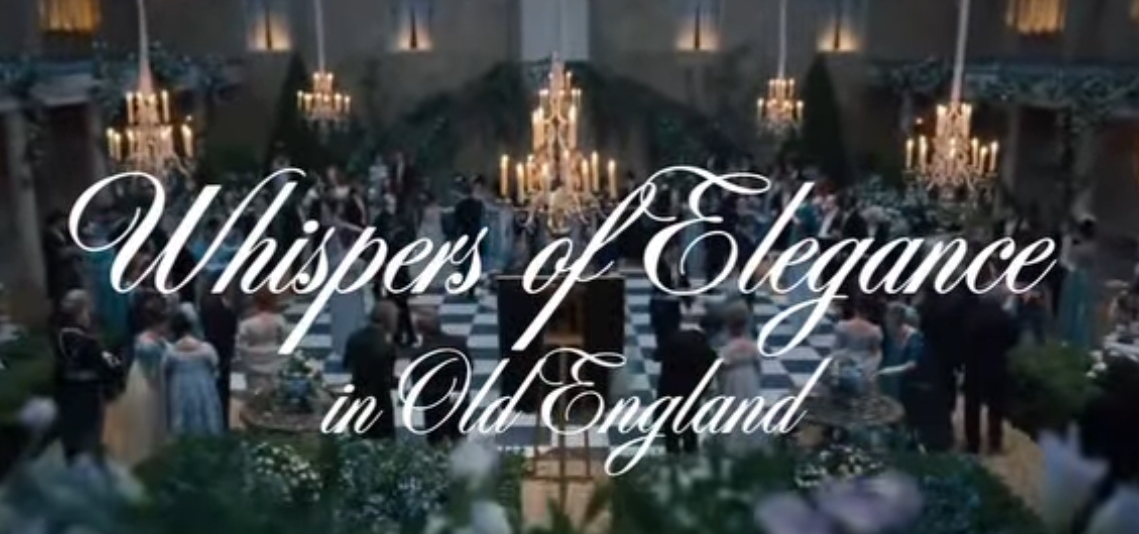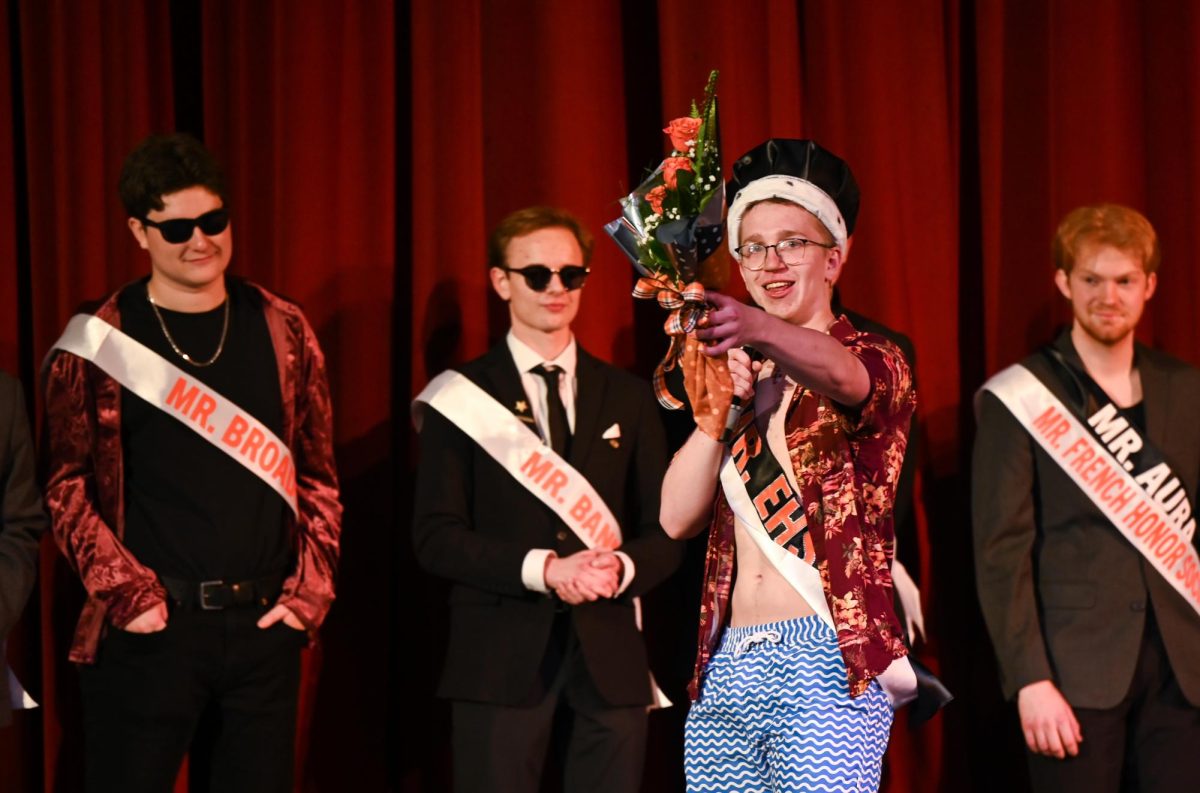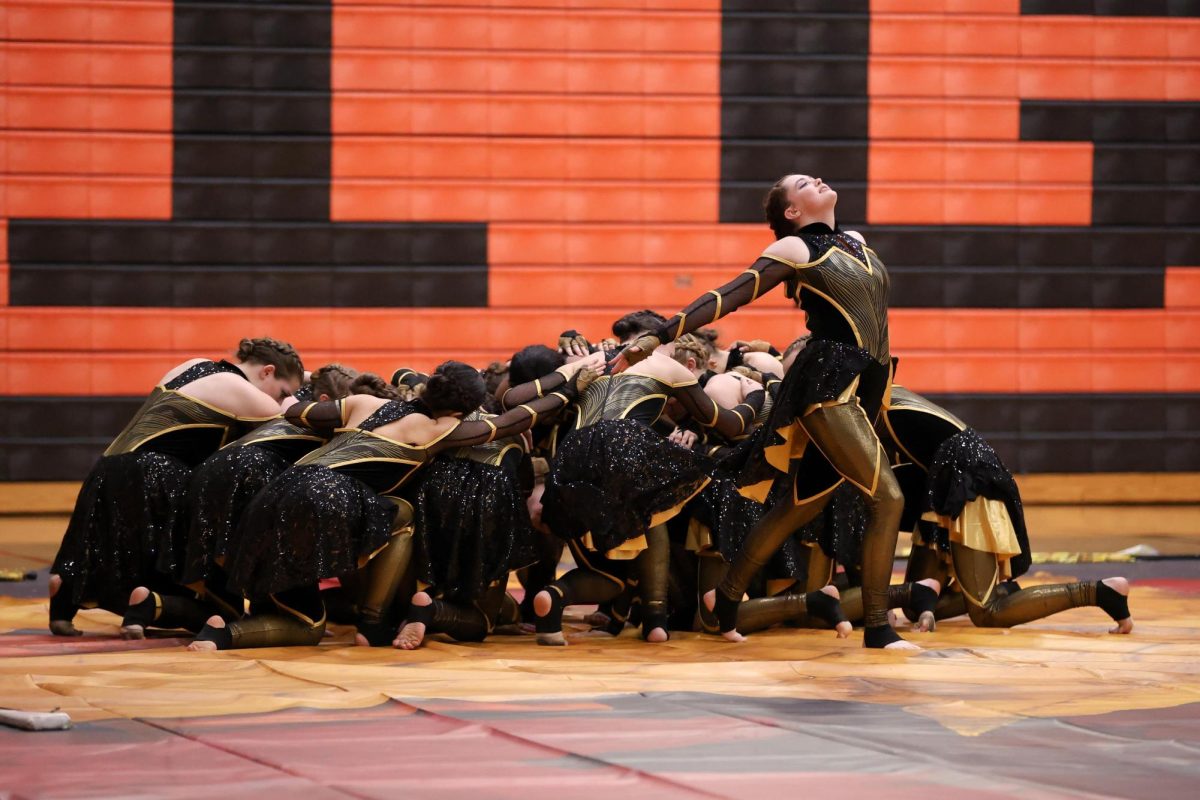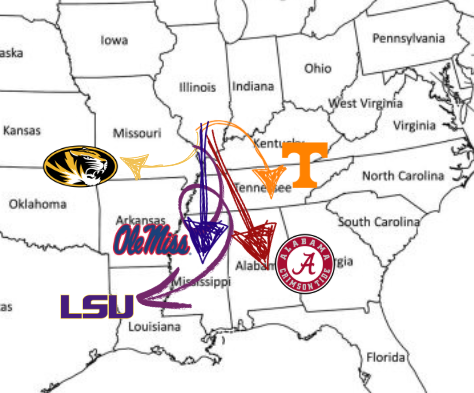The 1975 goes back to their Roots with Newest Album “Being Funny in a Foreign Language”
Matthew Healy performs at the Reading Music Festival, England, Sunday, Aug. 28, 2022. Courtesy of AP Images.
October 28, 2022
The 1975 has always represented a certain sense of nostalgia for me. It’s fall, the air is gray and the leaves are changing colors, and I’m reminded of the time I spent last October sitting at my kitchen table listening to Notes on a Conditional Form. With the release of their newest album, Being Funny in a Foreign Language, I am once again filled with that same sense of nostalgia as The 1975 goes back to their roots and embodies the sounds of previous albums.
Following the release of their fourth studio album Notes on a Conditional Form, The 1975’s fifth studio album, Being Funny in a Foreign Language, released on Oct. 14. fully embraces the ego and angst that gave The 1975 its reputation. But looking under lead singer Matthew Healy’s pretentiously cliche lyrics are heartfelt anecdotes, as The 1975 begins to weave a new narrative of love. Being Funny in a Foreign Language is undoubtedly their most sincere album to date, as Healy successfully manages to part ways with the glaring aspect of youth of their previous albums, while still embracing the indie-pop style that The 1975 is so popular for.
Just as the band’s four previous albums, Being Funny in a Foreign Language starts out with a song called “The 1975.” Where in past albums this was just a rework of the same song, “The 1975” takes on a different feel this time, maybe in an effort to represent a direction of change the band is heading in. “I’m sorry if you’re living and you’re 17,” Healy repeats over an expressive piano and string arrangement, a demonstrative example of his simple but yet profound lyricism. A contemplative and vibrating song, “The 1975” reinforces the idea of The 1975’s simultaneous return and departure from the feel of previous albums.
Following “The 1975” is “Happiness.” Upbeat in nature but surprisingly sincere, “Happiness” is a love song sung in a distinctly 1975 way. It almost acts as a parallel to previous albums, with a groovy synth beat almost identical to “UGH!” from I Like it When You Sleep for You are So Beautiful but Unaware of It. With lyricism and beats similar to previous work, “Happiness” seems to be a call of acknowledgement and admiration to past albums.
Track four, “A Part of the Band,” in all of its campy glory, embodies all that is The 1975. With cringey and sometimes eye-roll worthy lyrics displayed over groovy pop beats and guitar riffs, “A Part of the Band” is a prime example of The 1975’s simplicity.
But an eye roll is nothing new with The 1975, and going into this album I didn’t expect any different. The cringe and the cliche is something uniquely The 1975, and though Healy may not be a lyrical genius, he explores all of life’s faults in a simple and undeniably human way. Dealing with topics like heartbreak, loss and addiction, his music is constantly serving as an introspective look into life.
Track seven, “All I Need to Hear” departs from the usual upbeat sound with an eerily slow beginning. This song consists of a beautiful piano melody that weaves its way in and out of the chorus, “Tell me you love me that’s all I need to hear.” The quieter moments of this song allow Healy’s vocals to shine through, as he begs his lover to love him in return. In some respects, this song almost seems like a sickening sweet lullaby, telling a devastating story of love and heartache.
The album comes to its natural conclusion with a heartfelt anecdote in, “When We are Together.” It’s simple and it’s catchy, with its pulsing lyrics and guitar contemplatively playing in the background. “The only time I feel I might get better is when we are together,” Healy sings as he paints a reflective picture of loss and heartache, finishing the album with the recurring theme of love displaying itself proudly in the lyrics.












